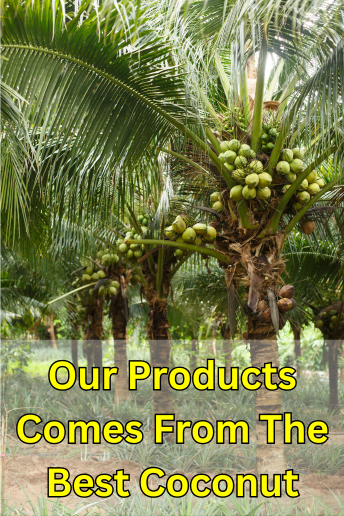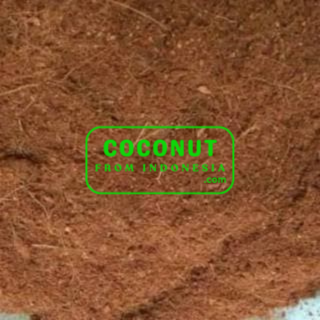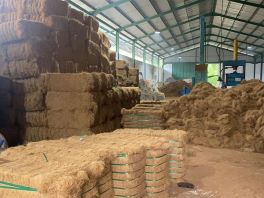Exploring the Versatility of Coir Mats: From Foot Comfort to Soil Erosion Prevention
 |
| pict source: Mats4u |
In the realm of sustainable living and eco-friendly alternatives, coir mats have emerged as a versatile solution with a myriad of benefits. Derived from the fibrous husk of coconuts, these mats offer not only comfort for your feet but also serve as a powerful tool in combating soil erosion. Let's delve deeper into what coir mats are, their various applications, and the process of crafting them, while subtly showcasing the benefits of cocofiber, the key ingredient in making coir mats.
What is a Coir Mat?
 |
| pict source: Juvale |
Coir mats, also known as coco mats, are made from the outer husk of coconuts (Cocos nucifera). This fibrous material, known as coir or coco fiber, is extracted from the husk and woven into durable mats of various sizes and thicknesses. These mats are renowned for their natural, eco-friendly properties and find application in a multitude of settings.
Applications and Benefits
1. Foot Comfort
One of the most common uses of coir mats is as doormats or indoor mats. The coarse texture of coir provides excellent scrubbing action, effectively removing dirt and debris from footwear, while its natural elasticity offers cushioning for feet.
2. Soil Erosion Prevention
 |
| pict source: IndiaMart |
Coir mats play a pivotal role in soil erosion control and landscaping. When laid over bare soil, these mats provide protection against water runoff and wind erosion. The interlocking fibers create a stable surface that helps retain soil moisture and promote plant growth, making them invaluable in erosion-prone areas such as hillsides and riverbanks.
In larger-scale erosion control projects, coir mats are often deployed as erosion control blankets. These blankets, typically made of coir fibers stitched between biodegradable netting, are laid over disturbed soil to stabilize slopes, prevent sediment runoff, and facilitate vegetation establishment.
3. Gardening and Landscaping
Beyond erosion control, coir mats are widely used in gardening and landscaping applications. They can be cut to size and placed around plants to suppress weeds, conserve moisture, and regulate soil temperature. Additionally, coir mats serve as biodegradable alternatives to synthetic mulches, further enhancing their appeal to environmentally conscious gardeners.
Materials and Crafting Process
The production of coir mats begins with the extraction of coir fiber from coconut husks. After harvesting, the husks are soaked in water to soften the fibers, making them easier to extract. Once separated, the fibers undergo cleaning and spinning to remove impurities and form yarns.
Next, the yarns are woven using traditional or mechanized looms to create the desired mat dimensions and patterns. Depending on the intended application, the mats may undergo additional treatments such as dyeing or coating for enhanced durability and aesthetics.
At PT Coconut From Indonesia, we take pride in offering premium-quality cocofiber, the essential ingredient for crafting durable and eco-friendly coir mats. Our sustainably sourced cocofiber is meticulously processed to ensure optimal strength and resilience, making it ideal for various applications ranging from doormats to erosion control blankets. Coir mats exemplify the harmonious convergence of sustainability, functionality, and versatility. From welcoming guests at your doorstep to safeguarding precious soil from erosion, these humble mats continue to make a significant impact in diverse settings. Embracing coir mats not only enhances our living spaces but also underscores our commitment to environmental stewardship.
If you have any questions or wish to place an order, kindly send the details of your order along with your requirements to the following email address and whatsapp:











